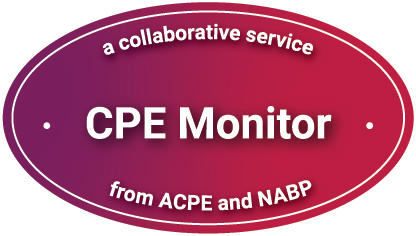
.jpg) |
South Carolina Pharmacy Law Update
|
Kayce Shealy, PharmD, BCPS, CDCES;
Board Executive/Chief Drug Inspector,
South Carolina Board of Pharmacy
|
| Tick Talk: Tick-borne Diseases in 2025 |
Colter G. Sheveland, PharmD
PGY2 Infectious Diseases Pharmacy Resident,
Prisma Health Richland
|
|
|
Unlocking Potential:
Leading with Empathy and Impact
|
Julie M. Sease, PharmD, FCCP, BCPS, CDCES, BCACP;
Senior Associate Dean and Clinical Professor,
USC College of Pharmacy
|
|
|
Top 10 Infectious Diseases Stories:
A look back at 2024
|
P. Brandon Bookstaver, PharmD, BCIDP, FCCP, FIDSA;
Professor & Director of Residency & Fellowship Training,
USC College of Pharmacy;
Infectious Diseases Pharmacist, Prisma Health Richland;
ID PGY2 & Clinical Fellowship Director, Prisma Health – USC;
Academic Fellowship Director, USC College of Pharmacy
|
|
|
Medications for Opioid Use Disorder:
The Pharmacists’ Role and Key Considerations
|
Kaileigh Yen, PharmD;
Practice Advancement Fellow,
UNC Eshelman School of Pharmacy
|
|
|
Rare Remedies: Navigating the Approval and
Use of Orphan Drugs in Pharmacy Practice
|
Betsy Blake PharmD, BCPS, FNAP;
Clinical Associate Professor and Director of
Interprofessional Education
USC College of Pharmacy |
|
Immunization Update 2025
|
Patricia H. Fabel, PharmD, BCPS, FAPhA;
Clinical Associate Professor, USC College of Pharmacy
|
|
|
|
Double Duty: Unveiling the Benefits of
GLP-1 Receptor Agonists
|
Jennifer Clements, PharmD,
FCCP, FADCES, BCPS, CDCES, BCACP, BC-ADM;
Clinical Professor and Director of Pharmacy Education,
USC College of Pharmacy
|
|
A Guide to Medication Treatment of
Depression and Anxiety Disorders
|
Jordan C. Haygood, PharmD, BCPP;
Clinical Pharmacy Specialist - Psychiatry, MUSC
|
|
1.jpg) |
Balancing Comfort and Safety in
Post-Op Pain Management
|
Lauren Linder, PharmD, BCPP;
Senior Research Associate, Co-Director &
Clinical Pharmacy Consultant,
SCORxE Academic Detailing Service,
Division of General Internal Medicine,
Geriatrics, and Palliative, MUSC
|
|
Primary Care New Drug Update – 2025
|
Kelly Jones, PharmD;
Director of Outpatient Pharmacotherapy Education,
McLeod Family Medicine Program, McLeod Health
|
|
|
Hours | Pharmacists | Pharmacy Technicians |
|
All programming
(Saturdays, February 1
AND
March 15)
|
12 hours
|
$140L | $75L |
- Active PEEP Preceptors: You will receive communication via email regarding discounted registration!
- USC College of Pharmacy Alumni: Prior to registering, please check your email and/or mail for information from the COP on discounted registration!
- L- Please note that fees will appear as “Learning Express” on your credit card statement
- Operating System: Windows, Mac OS and Linux
- Internet Browser: Internet Explorer 7.0 or higher; Mozilla Firefox 3.0 or higher; Google Chrome
- Computer Speakers or headphones connected to your computer
- Broadband Internet Connection: Cable, High-speed DSL or T1
- Monitor Screen Resolution: 320x480 or higher
- Media Viewing Requirements: Adobe Reader, Microsoft PowerPoint and HTML
CE Hours
CE Units
Activity Type
- Knowledge-Based and Application-Based
Target Audience(s)
- Pharmacists
- Pharmacy Technicians
Accreditation(s)

|
The University of South Carolina College of Pharmacy is accredited by the Accreditation Council for Pharmacy Education as a provider of continuing pharmacy education.
|
Requirements for CE Credit
- Read the learning objectives and faculty disclosures
- Review the video presentation and engage in any suggested interactivity
- Complete each post-test with a score of at least 75%
- Complete the program evaluation form (Before the Home Study expiration date)
|
Please choose a Fee Type from the Drop Down Menu Below:
I am a
|
South Carolina Pharmacy Law Update
- Explain the role and responsibilities of the Board of Pharmacy in regulating pharmacy practice and ensuring compliance
- Identify recent changes to laws and policies that impact the roles and duties of pharmacy personnel
- Discuss the practical implications of updated pharmacy regulations on workflow and patient safety
Speaker(s)/Author(s)
|
Kayce Shealy, PharmD, BCPS, CDCES
|
Activity Number
0062-0000-25-007-H03-P/T
CE Hours
Tick Talk: Tick-borne Diseases in 2025
- Describe the geographic distributions and epidemiology of common bacterial and parasitic tick-borne diseases across the United States and South Carolina
- Identify the most prevalent ticks that carry human pathogens and correlate them to a vector-pathogen pairing
- Recognize strategies to treat rickettsial diseases, Lyme disease, and other less common tick-borne diseases
- Identify over-the-counter products that can support the prevention of tick-borne diseases
Speaker(s)/Author(s)
|
Colter G. Sheveland, PharmD
|
Activity Number
0062-0000-25-022-H01-P/T
CE Hours
Unlocking Potential: Leading with Empathy and Impact
- Determine practical strategies for using emotional intelligence to improve teamwork
- Apply emotional intelligence concepts to improve teamwork in a real-world environment
- Identify key managerial actions that foster psychological safety in the workplace
- Apply best practices for conducting crucial conversations in real-world scenarios
Speaker(s)/Author(s)
|
Julie Sease, PharmD, FCCP, BCPS, CDCES, BCACP
|
Activity Number
0062-0000-25-009-H99-P/T
CE Hours
Top 10 Infectious Diseases Stories: A look back at 2024
- Summarize newly approved antimicrobials or those with expanded indications in 2024
- Recall key peer-reviewed evidence impacting infectious diseases patient care in 2024
- Identify important updates in infectious diseases clinical practice guidelines in 2024
Speaker(s)/Author(s)
|
P. Brandon Bookstaver, PharmD, FCCP, BCIDP
|
Activity Number
0062-0000-25-010-H01-P/T
CE Hours
Medications for Opioid Use Disorder: The Pharmacists’ Role and Key Considerations
- Summarize the medications for opioid use disorder (MOUD), including their indication, dosing, side effects, and clinical pearls
- Evaluate the pharmacists’ role in MOUD in various healthcare settings
- Differentiate between state and federal regulations surrounding the use and dispensing of MOUD
- Identify barriers to buprenorphine access for pharmacies and patients
- Recommend opioid overdose prevention strategies and resources to support safe and effective care for patients with OUD
- Summarize the medications for opioid use disorder (MOUD), including their indication, dosing, side effects, and clinical pearls
- Evaluate the technicians’ role in MOUD in various healthcare settings
- Describe state and federal regulations surrounding the use and dispensing of MOUD
- Identify barriers to buprenorphine access for pharmacies and patients
- Describe opioid overdose prevention strategies and available resources to assist in patient care
Speaker(s)/Author(s)
|
Kaileigh Yen, PharmD
|
Activity Number
0062-0000-25-011-H08-P/T
CE Hours
Rare Remedies: Navigating the Approval and Use of Orphan Drugs in Pharmacy Practice
- Explain the regulatory process for medications used in rare disorders
- Identify challenges in developing and approving medications for rare disorders
- Recognize commonly prescribed medications for rare disorders and their indications
- Summarize the role of the pharmacist with medications for rare disorders
Speaker(s)/Author(s)
|
Betsy Blake, PharmD, BCPS, FNAP
|
Activity Number
0062-0000-25-012-H01-P/T
CE Hours
Immunization Update 2025
- Apply updates from the national immunization recommendations to patient cases
- Recall vaccine safety and efficacy data
- Compare and contrast newly approved vaccine products
- Define proper vaccine administration techniques
- Explain the technician's role in providing immunizations
- Summarize updates to national immunization recommendations
- List newly approved vaccine products
- Review proper vaccine storage and handling
Speaker(s)/Author(s)
|
Patricia Fabel, PharmD, BCPS
|
Activity Number
0062-0000-25-013-H06-P/T
CE Hours
Double Duty: Unveiling the Benefits of GLP-1 Receptor Agonists
- Describe the mechanism of action for glucagon-like peptide-1 (GLP-1) receptor agonists in diabetes and obesity
- Identify the additional benefits of GLP-1 receptor agonists beyond diabetes and obesity management, including mortality and morbidity outcomes
- Develop a person-centered plan incorporating GLP-1 receptor agonists with appropriate follow-up to monitor efficacy and safety
Speaker(s)/Author(s)
|
Jennifer Clements, PharmD, FCCP, FADCES, BCPS, CDCES, BCACP, BC-ADM
|
Activity Number
0062-0000-25-014-H01-P/T
CE Hours
A Guide to Medication Treatment of Depression and Anxiety Disorders
- Review the pharmacology of medications used to treat depressive and anxiety disorders
- Summarize new treatment options for depressive and/or anxiety disorders
- Recommend an evidence-based medication regimen for patients with depressive and/or anxiety disorders
- Describe common medications used to treat depressive and anxiety disorders
- Identify new treatment options for depressive and/or anxiety disorders
- Analyze medication orders for patients with depressive and/or anxiety disorders to ensure accuracy
Speaker(s)/Author(s)
|
Jordan Cooler Haygood, PharmD, BCPP
|
Activity Number
0062-0000-25-015-H01-P/T
CE Hours
Balancing Comfort and Safety in Post-Op Pain Management
- Describe pre-operative screening methods of patients for preventing misuse and diversion of opioids
- Explain strategies for setting patient expectations about post-operative pain that promote conservative opioid use and enhance patient satisfaction
- Review special pain management considerations for patients on chronic opioids, including patients on medications for OUD who undergo surgery
- Formulate a surgery pain management plan for a patient on chronic opioids
- Describe pre-operative screening methods of patients for preventing misuse and diversion of opioids
- Explain strategies for setting patient expectations about post-operative pain that promote conservative opioid use and enhance patient satisfaction
- Review special pain management considerations for patients on chronic opioids, including patients on medications for OUD who undergo surgery
- Analyze medication orders for a surgery pain management plan in patients on chronic opioids
Speaker(s)/Author(s)
|
Lauren Linder Wier, PharmD, BCPS, BCPP
|
Activity Number
0062-0000-25-016-H08-P/T
CE Hours
Primary Care New Drug Update – 2025
- Identify new therapeutic agents recently marketed and their appropriate use
- Describe the indications, key adverse events, and precautions associated with each new therapeutic agent
- Compare and contrast new medications to others within similar therapeutic categories
- Discuss important drug interactions and pharmacokinetic parameters that are clinically relevant
- Identify new therapeutic agents recently marketed and their appropriate use
- Describe the indications, key adverse events, and precautions associated with each new therapeutic agent
- Compare and contrast new medications to others within similar therapeutic categories
- List important drug interactions associated with the new medications
Speaker(s)/Author(s)
|
Kelly Jones, PharmD
|
Activity Number
0062-0000-25-017-H01-P/T

